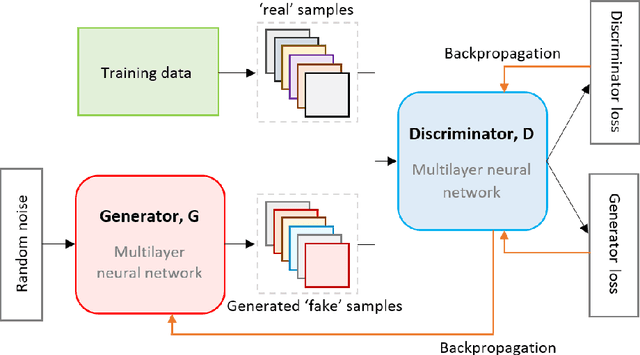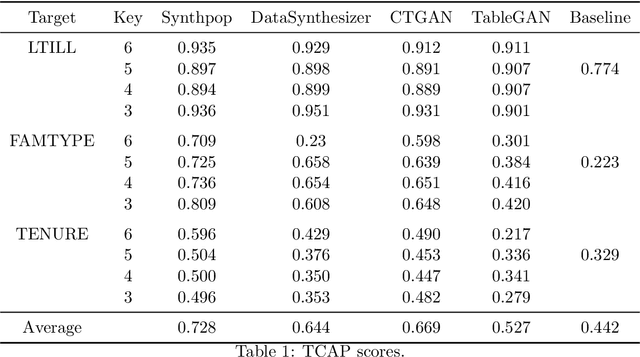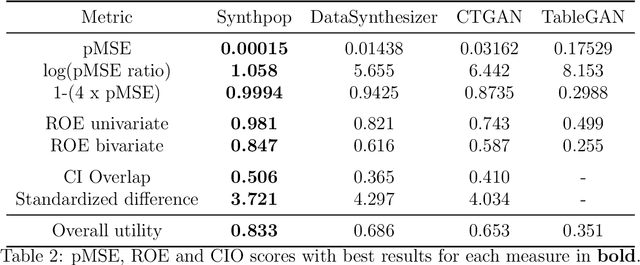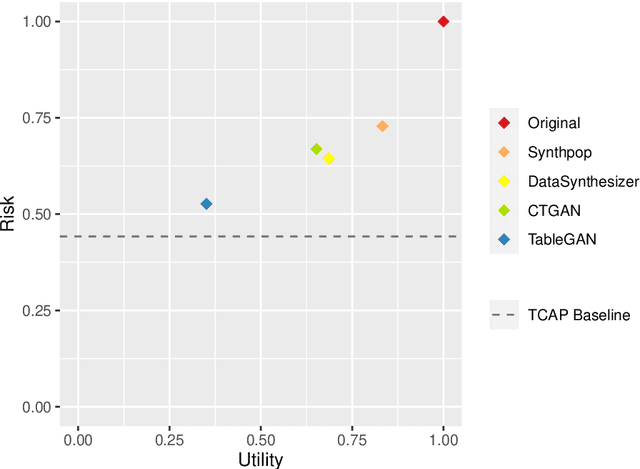Get our free extension to see links to code for papers anywhere online!Free add-on: code for papers everywhere!Free add-on: See code for papers anywhere!
Sahel Shariati Samani
Generative Adversarial Networks for Synthetic Data Generation: A Comparative Study
Dec 03, 2021Figures and Tables:







Abstract:Generative Adversarial Networks (GANs) are gaining increasing attention as a means for synthesising data. So far much of this work has been applied to use cases outside of the data confidentiality domain with a common application being the production of artificial images. Here we consider the potential application of GANs for the purpose of generating synthetic census microdata. We employ a battery of utility metrics and a disclosure risk metric (the Targeted Correct Attribution Probability) to compare the data produced by tabular GANs with those produced using orthodox data synthesis methods.
Via
 Add to Chrome
Add to Chrome Add to Firefox
Add to Firefox Add to Edge
Add to Edge